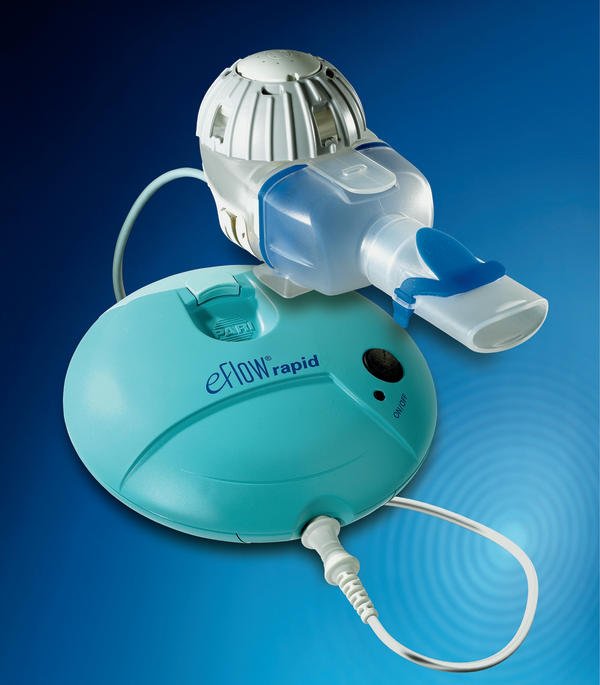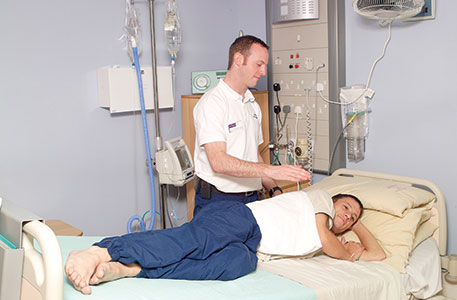This topic takes on average 55 minutes to read.
There are a number of interactive features in this resource:
 Biology
Biology

Enzyme pills
"I was 2½ years old when I was diagnosed with cystic fibrosis (CF). My mum and dad took me to the local doctor because I had a constant cold. I had skinny arms and legs and a distended stomach. My mum realised that by patting my back she was helping me feel better. I wasn’t sleeping because I was constantly hungry.
I was referred to a consultant who decided to do some tests, one of which was a sweat test. This is a relatively easy way to test for cystic fibrosis. This showed that I had CF as the sodium levels were so high. Since then, I’ve followed a treatment regime.
The reason I got cystic fibrosis is because both my parents carried the gene that causes it. Lots of people carry the gene but it’s only when both parents are carriers and have children that it can manifest itself. My brother doesn’t have CF, though. However, he may be a carrier and could have a blood test to check.
Tests for CF can now be done at birth. If I have a baby, I would get them tested for CF as I know I’m a carrier.
I have always had a lot of support from the medical profession since I was diagnosed. I got to the hospital every 6 weeks for checks, and every 12 weeks I routinely stay in hospital for treatment. The first thing they do is test my lung function using a lung function machine. At the moment, I can blow out 4.5 litres in 1 second. That’s really good – many people with CF can’t manage this. A poor function test could have a result as low as 0.8 which would mean that person really struggles with their breathing.
My height and weight are measured. People with CF tend to be very thin as they don’t digest their food properly. This is because mucous inhibits the pancreas from working properly which in turn affects digestion. I have to take enzymes, from pigs, to counteract this. Too many enzymes are dangerous so I have to be careful with this.
I also often have a course of antibiotics infused into me via a portacath which is permanently implanted under my skin and goes into one of my veins. The long lines they used before were very painful but this is pain-free.

PARI eFlow rapid. Electronic nebuliser

Physiotherapy in hospital
I have exercises to do which helps with my condition but I sometimes forget to do them! It’s silly to forget to do these as I know that doing the exercises regularly will prolong my life. The average life expectancy of someone with CF is 37 years. My case isn’t severe and so I’m lucky. The oldest person recorded with CF was 88 years old.
My daily regime is hard as I know what I have to do but sometimes I don’t want to. I sometimes think ‘What’s the point?’ as it’s so time-consuming. I can do any sport but others with CF can’t as they struggle for breath. I love my sport!
If this disease could be cured by genetic treatment, I wouldn’t have to go to hospital so often. I wouldn’t cough so much and would be able to run quicker. I’m at college now but maybe I would have stayed at school for longer – I don’t know.
My mum has looked into the family tree to see if there was any evidence of CF in my family. As it’s only quite recently that CF has been readily diagnosed, it’s difficult to tell but there were some unexplained infant deaths 4 generations ago. There’s no way of telling if it was CF or not.
CF can now be tested for during pregnancy, but that means that you have to weigh up the possibilities of the test causing the mother to lose the baby. I think it’s more important to have the heel prick test at birth. I think it would be unfair to terminate a pregnancy because the baby has CF. The baby doesn’t have a disease – just a defective gene. I know that because I have CF there’s a 95% chance that I won’t be able to have children, though.
I may think differently when I’m older but there are advances in genetic therapy – it’s developing all the time – but it’s expensive as the cells with the normal genes die and the process has to be repeated."

Patient with intravenous line
Cystic Fibrosis Trust
Cystic Fibrosis Care
Cystic Fibrosis latest research, Johns Hopkins